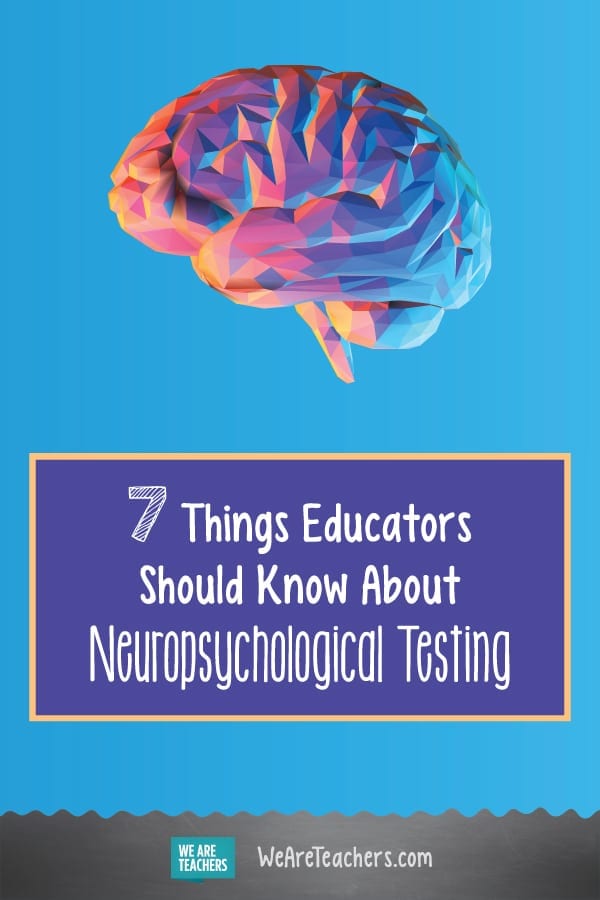Neuropsychological testing is a common request in schools these days. What is it exactly? It’s a psychologist-led set of assessments designed to answer questions about how an individual’s brain functions, including memory, reasoning, and problem solving. More specifically, neuropsychological testing for school-age children seeks to identify and provide information about learning challenges, including ADHD, language processing, and social-emotional development.
Throughout their careers, teachers may receive neuropsychological reports or find themselves with students who are in need of a neuropsychological evaluation. Below are some helpful things teachers should know.
It’s important to communicate with your families.
As this kind of testing is new to some, it may be necessary to prepare families for what to expect. Seeing a psychologist can carry a stigma for parents. I recommend describing in detail what kind of information a neuropsychological evaluation can provide, focusing on the brain function piece. Again, many families are distrustful of labels and how they may affect their child. Choose your words carefully and be mindful of where parents may be coming from.
Think of the test as a roadmap of a child’s learning.
While the assessments performed get at the nature of a student’s challenges, they should also highlight their strengths and gifts. The tests, along with other data collected from observations and interviews with parents and teachers, form the basis for a written report. The focus of this document is to provide parents and educators with a comprehensive learning profile. A good metaphor I’ve heard used is that this testing provides a roadmap of how a child learns and behaves.
Set expectations for a time commitment.
Students (and their parents) should be ready for the level of time and effort needed for this kind of testing. After speaking directly with parents to discuss the student at length, the neuropsychologist will then meet with the student over the course of a number of days. Parents can expect up to 10 hours of direct assessment. During that time, students will be given several different tasks to complete to get at their cognitive functioning, memory, attention, language, and visual-spatial skills.
Prepare students for both fun and not-so-fun games.
Some of the assessments will seem like games to students, especially if they hit on a student’s strengths. For example, I know a student who blew the assessor away with his ability to copy complex patterns using blocks. Yet, the assessments that asked him to pay attention to auditory information and repeat it back were difficult (and very frustrating) for him.
Expect lots of observations and interviews.
In addition to the assessments themselves, neuropsychologists will also conduct observations of students. Ideally these observations will be across environments, as students can behave differently at home than at school. It should be noted that interviews of teachers and parents also inform the neuropsychologist’s understanding of how a student processes information.
Learn how to better understand a student’s process.
While the data collected from the assessments themselves is valuable, so are processes students use to complete tasks. Does a student jump in to copy a complex figure from memory, or do they take a moment to plan out a strategy? Do they see the big picture or only lots of little parts? Do they grow more easily frustrated with some tasks than they do others? Their strategies and coping skills (or lack thereof) are often very telling and should be included in the written evaluation.
Help parents understand that they do have options.
Unfortunately, not all neuropsychologists are the same. As with pediatricians and other health specialists, referrals are important for finding the best match for a student. It is important that families speak directly to the neuropsychologist about their prior experience, especially when it comes to their background working with school-age children. Tell families it’s OK to shop around. Good providers will likely have a waiting list, but families shouldn’t be discouraged. Finally, cost can definitely be a factor for some families, so be sensitive about this and offer support as you can. Refer families to a school counselor for additional support or resources.
What experience do you have with neuropsychological testing? What advice would you give to your students’ parents about the process? Share your best advice in our WeAreTeachers HELPLINE group on Facebook.
Plus, check out 12 essential books for teaching kids with autism.

